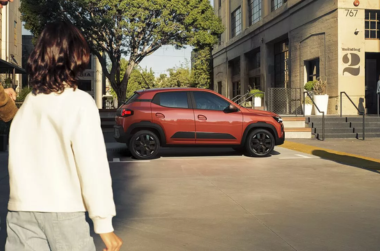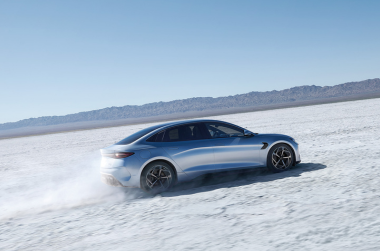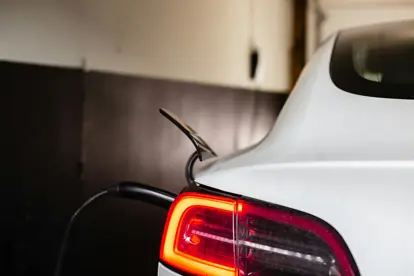
Environmental impact of electric vehicles
Explore the role that EVs play in the fight against climate change and building an environmentally friendly and sustainable transport system.
It's clear that electric vehicles (EVs) are seen as the solution to the issue of transportation's effect on climate change. In 2022, over a quarter of carbon emissions came from transportation in the UK - which despite seeing around 12% less emissions since 1990 - we still have a long way to go.
However, we have a long way to go. In the UK, around 16% of new cars sales are electric vehicles. In contrast, Norway is currently the leading country in terms of EV sales, accounting for 90% of all new car sales in the country. Their transition has been spurred by government incentives which means that EV buyers pay no VAT on new EV purchases, no import taxes, and a reduced rate of road tax. They have also mandated that all new vehicles should be zero-emission by 2025. All of this has helped Norway reduce it's emissions from transportation, and is a model for the rest of the world - including the UK.
Battery Power
Electricity from renewable sources emits zero total carbon emissions
Zero CO² Emissions
No tailpipe emissions, improving air quality
Recycled Materials
Some manufacturers use recycled materials that reduce carbon footprint
Always evolving
As clean energy technology improves, EV's will become even greener
Are electric vehicles good for the environment?



Zero tailpipe emissions
Electric vehicles don't emit toxic substances from a tailpipe/exhaust pipe like combustion engine vehicles do. These tailpipe emissions directly contribute to climate change, and can cause respiratory irritation, especially for people with breathing issues. EVs helps improve air quality, reducing greenhouse gas emissions and contributing to the fight against climate change.
Efficiency
Electric vehicles convert up to 90% of their stored energy (from their batteries) into power at the wheels. Compared to combustion engine cars, which usually only convert 20-30% of their energy from petrol/diesel into motion, EVs are much more efficient. Most electric vehicles come with regenerative breaking, which helps recoup battery by using the kinetic energy that would otherwise be lost during normal breaking - reducing energy waste.
Charging
New EV drivers often worry that their EV isn't necessarily carbon emission free, due to the way their electricity was generated. In the UK, around half of our energy production comes from natural gas with the rest made up of renewables, nuclear and biomass. However, renewable energy sources coming online every day and greater investment into green energy generation, we are certain that renewable energy will become the dominant energy source within the coming years, meaning you'll most likely be using clean energy to charge your EV.
EV production and the environment
Studies show that EV production emits more carbon than a traditional petrol or diesel car. However, it's worth noting that over the lifecycle of an EV (including the manufacturing process) EVs emit less CO² than these combustion engine vehicles - thanks to no tailpipe emissions.
Electric vehicles require specific rare earth elements, used primarily in the battery pack - many of which are sourced through mining processes that can have environmental impacts. However, as time and technology progresses, manufacturers are devising new ways to reduce this environmental impact, as well as making the manufacturing process more sustainable.
Manufacturers such as VW, BMW and Ford have all addressed issues surrounding decarbonising their supply chains - especially in steel and battery production - furthering reduced carbon emissions in the production process. It's also worth noting that as logistics operations become decarbonised through the use of electric transporter trucks and bio fuels for shipping, we will continue to see carbon emissions reduce in the production of EVs.
